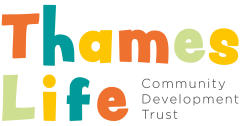It seems hard for people going through a rough time to see any way out. A lot of people in Barking & Dagenham are going through a hard time. According to the London Poverty Index Barking & Dagenham has the highest premature mortality rates of any London borough. Think about that. Barking & Dagenham has the highest rate of premature mortality anywhere in London. And think about it a third time.
I am going to approach this dilemma in two ways. The first one is more palatable: it states that everyone can change their emotional and physical health by their own direct actions. Health, wellbeing and happiness are things you can achieve by working at it. There are seven proven ways:
- Devote time to family and friends
- Focus on and express gratitude for all you have
- Engage regularly in acts of kindness towards others
- Cultivate optimism as you ponder your future
- Savour life’s pleasures and try to live in the present moment
- Exercise weekly or daily
- Try to find and commit to lifelong goals
I think all these things are worthwhile. I try to live by them. Probably most people do.
I find people relate more to personal stories, to individual actions and individual responsibilities; about how they feel, their core affect. We relate to friends, family, kindnesses, pleasures, the great outdoors. The things that inspire love, connection, belonging empower us – as individuals.
What happens if it stops there?
Individual empowerment is not the same as community empowerment. I am going to exaggerate to make a point. Using the metaphor of the film the Matrix, people live in a system of control they remain mostly unaware of.
Individual empowerment is the blue pill sold to us by the matrix. Policy makers are pushing this pill as the answer to health inequality. The operation of this world is via the mind, through deep programming which appropriates everything. In the Matrix there is no personal, political or ideological perspective that is not rendered wholly false. It allows illusion but no action. This is how social control works.
Why it is that people in Barking & Dagenham die sooner than elsewhere?
Is it an act of God, government or individual fecklessness?
Who should we hold to account?
Should we just hold ourselves to account and literally jog on?
Why do people in Barking & Dagenham die at higher rates than elsewhere?
To ask certain questions is to take the red pill. Critical questioning as opposed to naïve or magical bromides alters the perception of the matrix.
We’ve got all this growth going on, more housing units, lots of cranes on the skyline, so how come more people in Barking & Dagenham die at higher rates than elsewhere? How can we have both growth and rising inequality at the same time?
We know that poverty kills. Life expectancy for women in Kensington and Chelsea is 87.9 years. Life expectancy for men in Barking & Dagenham is 77 years, the lowest for any London borough.
Poverty is a consequence of political and economic decisions. It is not wholly accidental. It is structural and systemic. If everyone in London started doing the seven proven ways to manage their wellbeing which I started with, people in Barking & Dagenham would remain in last place because something else is going on.
A lot of my conversations with voluntary sector colleagues and other people in this borough inevitably tend to go to a certain place. We talk about social problems like how come people die sooner here than elsewhere and what to do about it. How come there is suffering and inequality and what do we do about it? Then we get to put our ideas on the table.
The health system talks about behaviour change. The preferred way of addressing these problems is not structural, they are about individual choices. It is not that your landlord needs to sort out the damp, you need to stop smoking and do yoga. The voluntary sector often talks about stronger relationships and the need to connect and collaborate. The council developer lobby promises inclusive growth where social inclusion flows from above and no resident is left behind. There are competing narratives, lots of storytelling, lots of ways to try to describe the reality of people dying sooner than they should, why that is and what to do about it.
TS Eliot said that humankind cannot bear too much reality. People prefer stories. The blue pill please. There are plenty of PR agencies and consultancies to help make the pill go down. The only way I see things changing is if people tell their own authentic stories, take action largely on their own terms and demand change from within their communities.
I am hoping everyone devotes time to family and friends, focuses on and express gratitude for what they have, engages regularly in acts of kindness, cultivates optimism, savours life’s pleasures, lives in the present moment, exercises regularly and commits to lifelong goals.
There was a glitch in the matrix. Normal service is now resumed.
Be well. Be happy.
Matthew Scott
CEO
